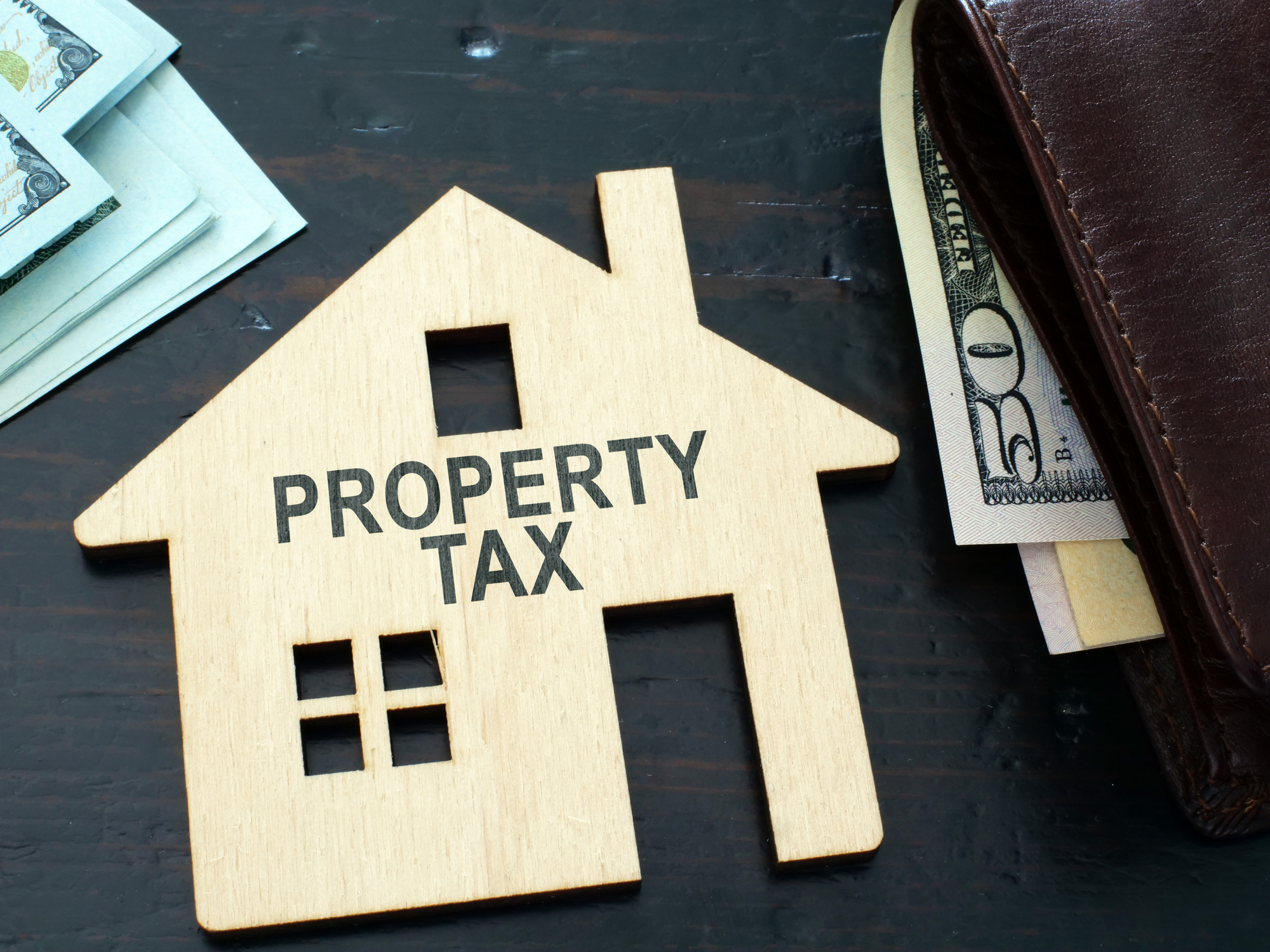
Many know New Hampshire for its scenic mountains, quaint wildlife, cheap alcohol, and low taxes. Some also know that New Hampshire is one of only nine states without an income tax (Alaska, Wyoming, Tennessee, Texas, Florida, South Dakota, Nevada, and Washington are the other eight) and one of five states without a sales tax (Alaska, Delaware, Montana, and Oregon are the other four). However, New Hampshire is one of only TWO states (Alaska is the other) without an income OR a sales tax. We all know that the government cannot function without revenue, and New Hampshire’s government needs to take in money somehow. So how does New Hampshire get its revenue? If you live in this state or have considered moving here, you know of the high property taxes assessed to its residents. But how are these property taxes calculated? In this post, we’ll explore this very question along with how this may impact you at tax time and how you can counteract such taxes.
How Is Property Tax Calculated?
For New Hampshire, like most other states with a property tax, the tax is assessed based on the value of the property. Specifically, there is a dollar value assessed for every $1,000 of property valuation. As an example, if the tax rate is 20 and your home is valued at $750,000, your property tax would be a hefty $15,000 ($750,000*20/1000).
How Is Property Valued?
Each municipality (just a fancy word for town) values property based on the appraised value as of April 1st of the current year. This appraised value is the amount someone believes it to be worth in comparison to how much they’re willing to pay and the price of comparable homes sold recently in the market. Municipalities will periodically revalue property to get a more up-to-date valuation. Since this process is expensive and time-consuming, property is normally not revalued every year.
Where Should You Live?
There are many considerations that go into where someone decides to live, and taxes are certainly one of those considerations. The New Hampshire Department of Revenue releases the tax rates of each municipality year to year. To get an idea of what your taxes might look like, you can follow this link and click on the “tax rates” PDF of the Excel sheet for 2023. The rates will vary from town to town. Some of the larger cities’ rates are as follows: Manchester: 18.86, Nashua: 18.23, Concord: 26.86, and Bedford: 14.80.
Keep in mind, when deciding on where to live, property value is directly related to your annual tax bill. For instance, Bedford is known for its great schools. While that city’s tax per $1,000 is lower than that of Manchester, Concord, or Nashua, you will likely find yourself paying more for a home and, as a result, having a higher tax bill. If you don’t have school-age children, it may make sense to look at moving to a town that isn’t as highly rated for schools with potentially lower tax rates and property values.
Are There Property Tax Exemptions or Credits?
Each municipality can offer property tax exemptions and credits for specific groups or their residents. Two of the primary property tax exemptions and credits in New Hampshire are for low-income elderly folks and military veterans. Check your municipality’s website for specific information about the available property tax exemptions and credits where you live.
1) Elderly Exemption
There are a few limiting criteria that must be met to be eligible for this exemption.
- Must be at least 65 years old on or before April 1
- Must have resided in New Hampshire for three consecutive years on or before April 1
- Must have owned the residence by April 1 individually or jointly
- Must have been married for at least five years if the spouse owns the residence
- Must own a home that meets the definition of residential real estate
- The property could not have been transferred within the last five years to the individual from a person under the age of 65 and related to them
There are also income and asset requirements that must be met. Your income must be below a certain value if married or if single. Your assets (not including the home and up to two acres of its land) must be below a certain value. This will vary for each town. Each municipality may choose to increase these thresholds if they wish. Some examples include:
- Manchester:
- Income shall not exceed $47,000 if single and $63,000 if married
- Assets shall not exceed $100,000 if single and $130,000 if married
- Nashua:
- Income shall not exceed $54,000 if single or married
- Assets shall not exceed $162,000
- Concord:
- Income shall not exceed $42,000 if single and $60,000 if married
- Assets shall not exceed $150,000
- Bedford:
- Income shall not exceed $58,320 if single and $78,880 if married
- Assets shall not exceed $150,000
The exemption amount for qualified elderly individuals varies for each municipality and the age of the individual. Most municipalities have age-banded amounts that increase with age. For instance, Nashua’s exemption amounts are $256,000 for ages 65-74, $295,000 for ages 75-79, and $363,000 for 80 or above.
2) Military Veterans
In order to qualify for the standard veterans’ credit, the claimant must have been a resident of the town for at least one year prior to April 1 of the year in which the credit is claimed and must have served 90 or more days during a wartime period and received an honorable discharge or was discharged due to a service-connected disability. The credit can range from $50 to $2,000 or a full exemption depending on the municipality. Also, if the property is owned by married veterans, they are both eligible for the credit.
Surviving spouses of service members who have died while on active duty with the United States military or in military service of a foreign ally of the United States and disabled veterans are also eligible for different credits. For a more thorough explanation, you can review the U.S. Army’s description of these credits and exemptions here.
Municipalities can also alter these requirements. An example of this is Bedford; starting in 2023, active-duty homeowners may be eligible for the veterans’ credit (served for more than four years and continues to serve). The credit will also no longer require that only those honorably discharged are eligible.
Does New Hampshire Have Other Taxes?
The property tax is not the only way New Hampshire collects revenue. New Hampshire also has an interest and dividends tax (although this is going away after 2024) and a business profits tax (BPT) of 7.5% on income for businesses with revenue greater than $103,000. There is also a minimum tax for businesses with revenue greater than $281,000 based on New Hampshire payroll, dividends, and interest paid x 0.55%. This tax, known as the business enterprise tax, or BET, is applied as a credit against the BPT if that is higher.
What About You?
Tax planning is an important part of any financial plan. With the absence of a sales or income tax in New Hampshire, tax planning often gets overlooked. However, being informed about property tax rates, exemptions, and credits gives you the information you need to make decisions that can potentially save you thousands on taxes every year.
The decision to buy or sell a home shouldn’t be made solely because of tax reasons, but that should be a consideration, especially if you live or work in a state other than New Hampshire. Also, this blog does not cover all aspects of the various New Hampshire taxes. It’s best to consult your financial advisor before making these big decisions to make sure you have thought about all the pertinent variables.
Although there is a lot to consider with state income taxes, you don’t have to do it alone. If you need assistance with your tax planning or retirement planning in general, please reach out to our team.
Disclaimer: This is not to be considered investment, tax, or financial advice. Please review your personal situation with your tax and/or financial advisor. Milestone Financial Planning, LLC (Milestone) is a fee-only financial planning firm and registered investment advisor in Bedford, NH. Milestone works with clients on a long-term, ongoing basis. Our fees are based on the assets that we manage and may include an annual financial planning subscription fee. Clients receive financial planning, tax planning, retirement planning, and investment management services and have unlimited access to our advisors. We receive no commissions or referral fees. We put our client’s interests first. If you need assistance with your investments or financial planning, please reach out to one of our fee-only advisors. Advisory services are only offered to clients or prospective clients where Milestone and its representatives are properly licensed or exempt from licensure. Past performance shown is not indicative of future results, which could differ substantially.



